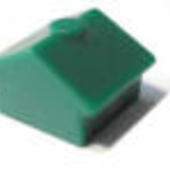As part of President Obama's economic stimulus plan, a $7,500 first time home buyer tax credit has made its way into the legislation which has already passed in the House this week.
The proposed new $7,500 first time home buyer tax credit is a revised version of the tax credit that was part of the Housing and Economic Recovery Act of 2008 which was made available to first time home buyers that purchased a home between April of 2008 and July of 2009. The original legislation required the tax credit to be repaid over 15 years, basically, it was an interest free loan.
The impact that the original legislation had on demand was that home sales actually declined from April at a pace of 4.89 million seasonally adjusted home sales to 4.74 million in December, according to the NAR. In other words, the tax credit was a waste of legislation, I know, shocking.
Now Obama is proposing first time home buyer tax credit 2.0 which would eliminate the requirement to repay the tax credit. Here's the problem, there are two types of first time home buyers. There are people that actually want to buy a home but are unable to because they don't have the down payment or credit which would allow them to purchase, a $7,500 tax credit won't change this. The other segment of first time home buyers are those that don't want to purchase a home because they think home values are going to fall lower, and they are right. In this case, a nominal $7,500 tax credit is a trojan horse incentive considering home values just fell 15% this past year. The tax incentive looks great until you consider that the home you just purchased will actually lose more value than you gained from the tax credit. Clearly, real estate is a long term investment, as any investment is, but that doesn't mean that you want to "drive it off the lot" only to lose thousands of dollars over the next year.
On a side note, the tax credit is only available to first time home buyers with an income of less than $75,000 or $150,000 for joint tax filers. Why is there the perception that those that make more money are somehow not an integral part of a housing and economic recovery?
The truth is, there simply are not enough qualified, first time home buyers, that have the credit and capital, along with the confidence, to go out and buy a home in this market in order to have a meaningful effect on the supply and demand imbalance. The current homeownership rates of 68% are still hovering well above historic norms of 64%. Withthe exception of the subprime years, more Americans own a home today than ever before. What this means is that a housing stimulus targeted at first time home buyers is a losing proposition. The solution is to target a stimulus at Americans that have the credit and capital that are able to invest in real estate.


Comments(27)